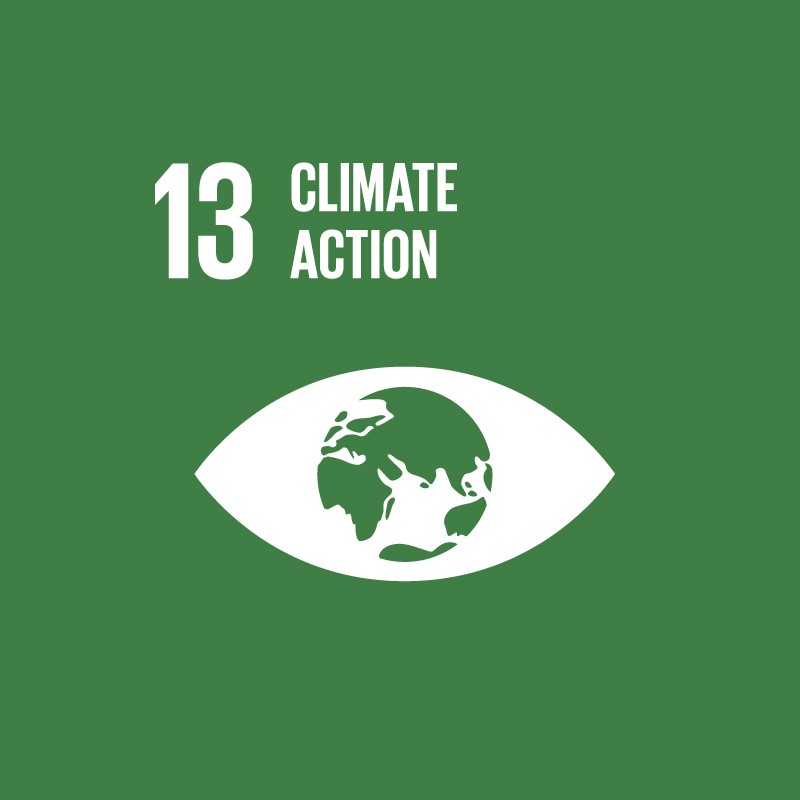Climate action - towards a clean energy transition
In its 2021 report, the IPCC reaffirmed the unequivocal role of mankind in the warming of the atmosphere, oceans, and land.[1] With the 2021 Glasgow Pact narrowly managing to keep the 1.5° Celsius target alive, it is more urgent than ever to take action towards reducing emissions and climate mitigation and adaptation. The IPCC believes that the world’s entire economic system will need to be overhauled in order to achieve that, but that this will also create demand for sustainable products and services.

Our focus
At FMO, we feel called upon to contribute towards addressing the climate crisis. Beyond assessing the impact of our activities on the environment to protect our most vulnerable customers and beneficiaries, we are taking measures to manage climate-related risks and opportunities. Since adopting our 2050 vision in 2013, Climate Action (SDG 13) has been central to our strategy. Our Sustainability Policy outlines our commitment to align our portfolio with the Paris Agreement.
Climate change is also inextricably linked to our second goal of Reducing Inequality (SDG 10), as climate change disproportionately affects poor people in developing countries. Climate change is the leading cause of internal displacement and climate migration: shortages of food and water, natural disasters and other extreme weather events are displacing people and putting pressure on already strained infrastructures. FMO invests in companies, funds and projects that are aimed at reducing the vulnerability of these people, building climate change-resilient environments and increasing access to food, energy, and water.
At COP26 in November 2021, FMO committed to a clean energy transition by signing an international joint statement to end new direct public support for unabated fossil fuel energy by the end of 2022. In 2021, we also published our own position statement on fossil fuels financing. This can be found on our website.
FMO also works to preserve critical landscapes and forests that serve as a carbon sink. Together with experts we test and evaluate the best financing opportunities in the soil, forestry, and land use sectors. Our expertise in blended finance is an asset in the development of multi-stakeholder finance mechanisms for scalable ventures in these sectors.
Furthermore, we are encouraging the development finance community to account for carbon emissions in a harmonious and standardized manner. The Joint Impact Model (JIM) is a publicly accessible tool which enables the quantification of indirect jobs, value added and greenhouse gas (GHG) emissions related to corporate lending portfolios. The methodology allows banks in developing countries to report on their financed emissions aligned with the Partnership for Carbon Accounting Financials (PCAF) Standard. The JIM is part of FMO’s endeavors to harmonize models, methodologies, and indicators at a global level.
How we make a difference
A just and inclusive transition towards our goals is still a long way off. However by forging the right alliances , making bold commitments, and following through with sound investments, we can make a difference. A few programs worth mentioning in this context are the Dutch Fund for Climate and Development (DFCD), Mobilising Finance for Forests (MFF) and Climate Investor 2 (CI2).
The Dutch Fund for Climate and Development
The DFCD invests private sector funds in projects focused on climate adaptation and mitigation in developing countries. The €160 million fund is backed by an initial commitment by the Dutch Ministry of Foreign Affairs and is managed by Climate Fund Managers (CFM), World Wide Fund for Nature Netherlands (WWF-NL), and SNV Netherlands Development Organization, and FMO. The DFCD forms an important additional instrument for the Dutch government’s efforts in contributing to the Paris Agreement and the SDGs. Learn about the startups participating in the DFCD challenge at COP26.
Mobilising Finance for Forests
Mobilising Finance for Forests was established in 2021 by the UK government and FMO as a blended finance investment program to combat environmentally unsustainable land use practices. Through MFF, we are investing up to £150 million across various investment funds and projects in selected tropical forest regions in Africa, Asia, and Latin America. These projects increase the value of standing forests and lower the incentive to cut them down, or integrate forest protection and restoration into agricultural production. The program’s investees are supported with technical assistance post investment.
Climate Investor 2
With a US$1 billion target, CI2 provides expertise, technology, and finance to projects that support adaptation and mitigation in vulnerable communities. Building on CI1’s focus on energy, CI2 targets water, sanitation, and oceans infrastructure, all areas greatly impacted by climate change. CI2’s blended finance structure simplifies the way capital is deployed and reduces complexity by delivering an innovative ‘whole-of-life’ solution that provides a single financing source for each phase of a project’s lifecycle.
Managing climate-related risks and impacts
In addition to driving impact, it is important that FMO effectively manages climate-related risks in its portfolio and discloses this information to its stakeholders. In 2021, we established a cross-departmental climate-related risk working group, which is tasked with embedding climate and environmental risk within FMO based on the ECB expectations. Since then, we have:
Started discussing the governance structure of climate-related risks with the Management Board;
Initiated processes to embed climate-related risks in our risk appetite framework;
Conducted high-level portfolio scans based on our exposure to physical and transitional risks, starting with our energy portfolio.
In addition, since 2019 we have reported on our approach to climate-related risks and opportunities in line with the Task Force on Climate-Related Financial Disclosures (TCFD). In 2021, we published a separate TCFD report, which includes the disclosure of specific climate-related risk metrics.
In 2022, under the Climate Commitment of the Netherlands’ Financial Sector, FMO is expected to report its climate targets for 2030 and related action plan. This will be included in the update of FMO’s 2030 strategy that will be finalized in 2022.
- 1 IPCC (2021). Sixth Assessment Report (ipcc.ch)